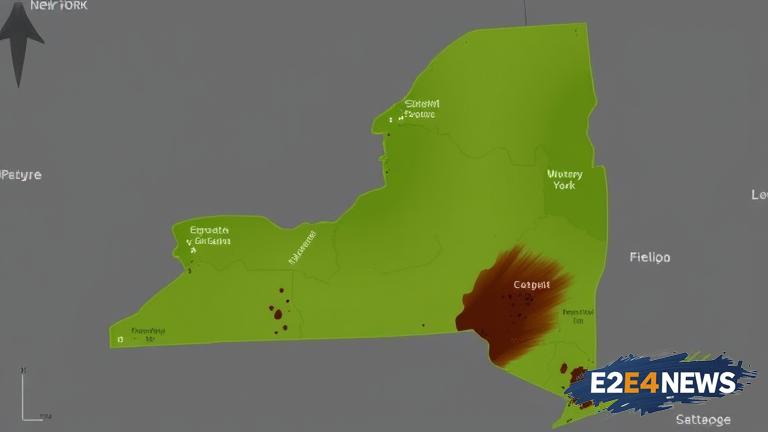The New York State Department of Environmental Conservation (DEC) has officially announced that hunting and trapping licenses for the 2025-26 season are now available for purchase. This news is significant for outdoor enthusiasts and hunters across the state, as it marks the beginning of a new season of recreational activities. The DEC is responsible for managing and regulating hunting and trapping in New York State, and the sale of licenses is a crucial part of this process. The licenses are required for anyone who wishes to hunt or trap in the state, and they help to ensure that these activities are carried out in a safe and sustainable manner. The 2025-26 hunting and trapping licenses are now available for purchase online, by phone, or in person at various locations throughout the state. Hunters and trappers can choose from a variety of license options, including resident and non-resident licenses, as well as licenses for specific types of game such as deer, turkey, and waterfowl. The DEC has also announced that there will be several new regulations and changes in place for the upcoming season, including updates to the state’s deer management plan and new rules for the use of tree stands and blinds. In addition, the DEC will be offering several hunter education courses and training programs throughout the state, which are designed to teach hunters about safe and responsible hunting practices. These courses are required for all new hunters, and they cover topics such as hunting laws and regulations, wildlife management, and outdoor safety. The DEC is also reminding hunters and trappers to always follow safe and responsible practices when engaging in these activities, including wearing blaze orange, using tree stands and blinds safely, and respecting private property rights. Furthermore, the DEC is encouraging hunters and trappers to report any harvests or sightings of certain species, such as deer and turkey, to help with wildlife management efforts. The data collected from these reports will be used to inform future management decisions and ensure that hunting and trapping activities are sustainable and effective. Overall, the sale of hunting and trapping licenses for the 2025-26 season is an exciting development for outdoor enthusiasts in New York State, and it marks the beginning of a new season of recreational activities. The DEC is committed to ensuring that these activities are carried out in a safe and sustainable manner, and the sale of licenses is an important part of this process. By purchasing a license and following safe and responsible practices, hunters and trappers can help to conserve and manage New York State’s wildlife resources for future generations. The DEC is also working to promote hunting and trapping as a way to connect with nature and enjoy the outdoors, and to provide opportunities for people to learn about and appreciate wildlife. In addition to the sale of licenses, the DEC is also offering several other resources and services for hunters and trappers, including maps and guides, hunting and trapping regulations, and information on wildlife management and conservation. The DEC is also partnering with other organizations and agencies to promote hunting and trapping and to provide opportunities for people to get involved in these activities. For example, the DEC is working with the New York State Outdoor Guides Association to provide guided hunting and trapping trips for people who are new to these activities. The DEC is also partnering with the National Wild Turkey Federation to provide information and resources on wild turkey hunting and management. Overall, the sale of hunting and trapping licenses for the 2025-26 season is an important development for outdoor enthusiasts in New York State, and it marks the beginning of a new season of recreational activities. The DEC is committed to ensuring that these activities are carried out in a safe and sustainable manner, and the sale of licenses is an important part of this process. By purchasing a license and following safe and responsible practices, hunters and trappers can help to conserve and manage New York State’s wildlife resources for future generations.





